Have you ever wondered why baby birds seem to have an uncanny ability to poop right after they eat? It’s a peculiar phenomenon that has puzzled both scientists and bird enthusiasts alike.
These tiny creatures, barely out of their shells, manage to produce waste almost immediately after devouring a meal. Is it a mere coincidence, or is there a deeper biological reason behind this behavior?
In this article, we delve into why do baby birds poop right after they eat and explore the various theories that attempt to explain why they have such an efficient digestive system. Get ready to uncover the secrets behind their timely post-meal pooping habits!
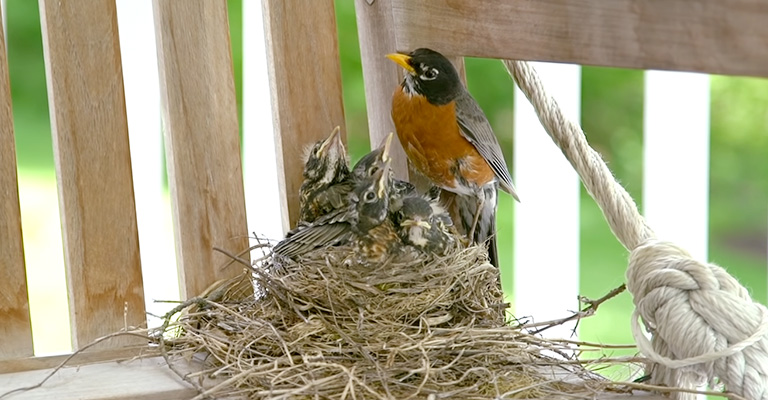
Why Do Baby Birds Poop Right After They Eat?
Baby birds poop right after they eat for several reasons. Here are eight possible explanations for this behavior:
Efficient Digestion
Baby birds have a fast metabolism, and their digestive systems work quickly to process food. As a result, waste is rapidly produced and eliminated.
Elimination of Toxins
The rapid elimination of waste helps remove any potentially harmful substances or toxins from the bird’s body, ensuring its overall health and well-being.
Nest Hygiene
By eliminating waste immediately after eating, baby birds help maintain a clean and hygienic nest environment. This reduces the risk of bacterial growth and disease transmission.
Weight Management
Baby birds have limited mobility and need to keep their weight as low as possible for efficient movement. Eliminating waste promptly helps them maintain a lighter body weight.
Increased Feeding Frequency
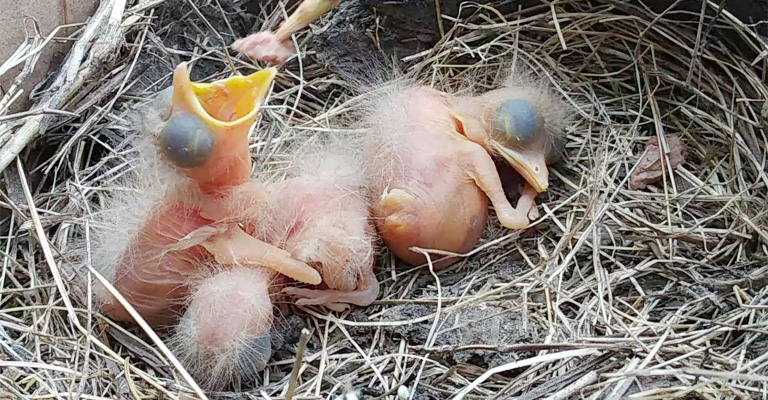
Baby birds require frequent feedings to support their rapid growth and development. By eliminating waste quickly, they can make room for more food and ensure they receive adequate nutrition.
Parental Stimulation
In many bird species, the act of feeding stimulates the baby bird’s digestive system, triggering the need to eliminate waste. This helps establish a connection between feeding and waste elimination.
Protection from Predators
By eliminating waste immediately after eating, baby birds reduce the chances of attracting predators to their nest. The absence of lingering odors or visible waste decreases the risk of detection.
Bird Nest Sanitation
The prompt elimination of waste helps keep the nest clean and prevents the accumulation of feces, which can attract parasites or insects that may harm the baby birds.
Baby birds poop right after they eat for various reasons, including efficient digestion, elimination of toxins, nest hygiene, weight management, increased feeding frequency, parental stimulation, protection from predators, and nest sanitation.
How Often Should Baby Birds Be Pooping?
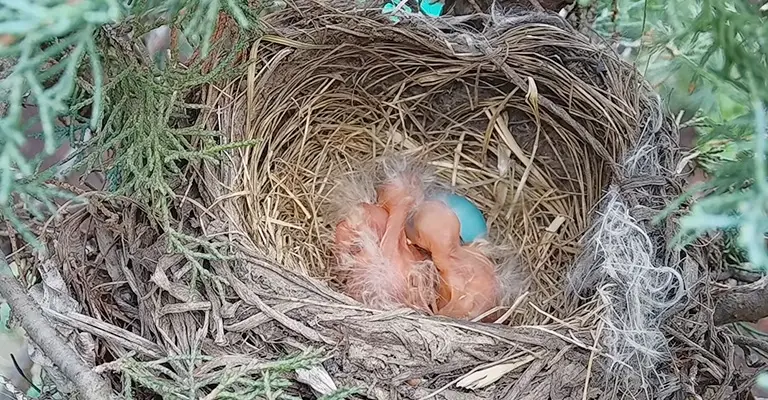
The frequency of baby bird poop can vary depending on factors such as age, species, and diet. Generally, baby birds tend to poop quite frequently, sometimes even after every feeding.
However, it is important to note that there is no set rule for how often baby birds should be pooping, as individual variations are common.
During the first few weeks of their lives, when they are being fed a liquid diet by their parents, baby birds may produce small, frequent droppings. As they grow older and start consuming solid food, their droppings may become larger and less frequent.
It is crucial to monitor the baby bird’s droppings for any signs of abnormality. Healthy droppings typically consist of a combination of solid waste (feces) and liquid waste (urine).
The color and consistency of the droppings can vary depending on the bird’s diet, but they should generally be well-formed and not excessively watery or runny.
If you notice any significant changes in the frequency, color, or consistency of the baby bird’s droppings, it may indicate a potential health issue. In such cases, it is advisable to consult a veterinarian or an avian specialist for proper evaluation and guidance.
Remember, each bird species and individual bird may have unique patterns and variations in their droppings, so it is essential to observe and understand what is normal for the specific bird in question.
What Happens If a Baby Bird Doesn’t Poop?
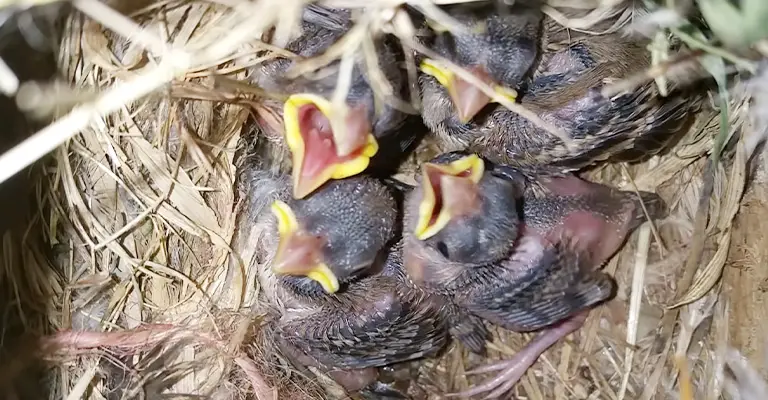
If a baby bird doesn’t poop, it can be a cause for concern and may indicate an underlying health issue. Here are a few potential consequences of a baby bird not pooping:
Digestive Blockage
A lack of bowel movements can be a sign of a digestive blockage or impaction. This can occur if the bird has ingested something that is obstructing its digestive tract, preventing the passage of waste.
Dehydration
When waste accumulates in the bird’s system without being eliminated, it can lead to dehydration. The body’s natural process of eliminating waste also helps remove excess water from the body. Without regular bowel movements, the bird may become dehydrated.
Bacterial Overgrowth
The accumulation of waste in the bird’s digestive system can create an environment conducive to bacterial overgrowth. This can lead to digestive disturbances, infections, and other health issues.
Malnutrition
If a baby bird is not eliminating waste, it may indicate that it is not properly digesting and absorbing nutrients from its food. This can result in malnutrition and hinder the bird’s growth and development.
Discomfort and Pain
The inability to eliminate waste can cause discomfort and pain for the baby bird. It may exhibit signs of distress, such as restlessness, vocalization, or a lack of appetite.
If you notice that a baby bird is not pooping, it is important to seek veterinary assistance as soon as possible. A veterinarian or avian specialist can examine the bird, determine the underlying cause, and provide appropriate treatment.
They may recommend interventions such as gentle massage to stimulate bowel movements, dietary adjustments, or medical interventions to address any blockages or health issues.
It is crucial to address the issue promptly to prevent further complications and ensure the well-being of the baby bird.
Taking Care of A Baby Bird’s Digestive Health
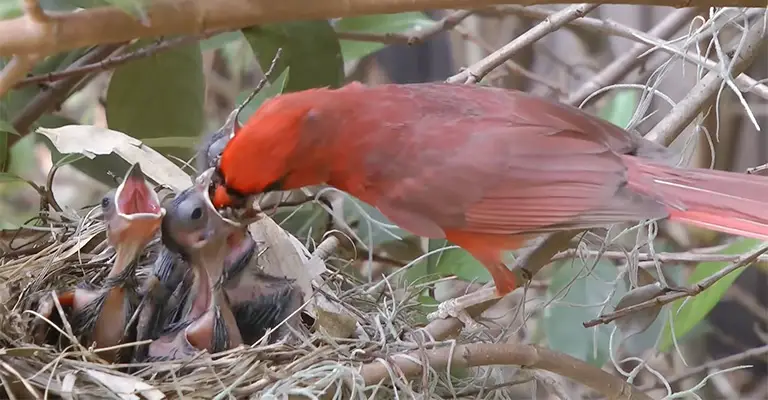
Taking care of a baby bird’s digestive health is crucial for its overall well-being. Here are some tips to help maintain a healthy digestive system:
Proper Diet
Ensure that the baby bird is receiving an appropriate diet for its species. Different bird species have specific dietary requirements, so consult with a veterinarian or avian specialist to determine the best diet for the bird.
A balanced diet that includes the right combination of proteins, carbohydrates, fats, vitamins, and minerals is essential for optimal digestion.
Feeding Technique
If you are hand-feeding the baby bird, it is important to use the correct feeding technique. Follow the guidelines provided by a veterinarian or avian specialist to ensure that the bird is receiving the right amount of food and that the feeding process is gentle and stress-free.
Hydration
Proper hydration is essential for healthy digestion. Ensure that the baby bird has access to fresh, clean water at all times.
If the bird is not drinking water independently, consult with a professional on how to provide hydration through appropriate methods.
Avoid Overfeeding
Overfeeding can put stress on the bird’s digestive system and lead to digestive issues. Follow the recommended feeding schedule and portion sizes to prevent overfeeding.
Avoid Feeding Inappropriate Foods
Some foods can be harmful to birds and may disrupt their digestive system. Avoid feeding the baby bird foods that are toxic or difficult to digest, such as chocolate, caffeine, alcohol, avocado, and high-salt or high-sugar foods.
Environmental Cleanliness
Maintain a clean and hygienic environment for the baby bird. Regularly clean the bird’s enclosure or nest to prevent the accumulation of waste, bacteria, and parasites that can negatively impact digestive health.
Regular Veterinary Check-ups
Schedule regular check-ups with a veterinarian or avian specialist to monitor the baby bird’s overall health, including its digestive system. They can provide guidance, perform necessary tests, and address any potential issues before they become serious.
Avoid Stress
Minimize stressors in the baby bird’s environment, as stress can affect digestion. Provide a calm and quiet space, avoid sudden changes, and handle the bird gently to reduce stress levels.
Remember, each bird species may have specific digestive needs, so it is important to consult with a professional who can provide tailored advice based on the bird’s species and individual requirements.
FAQs
Signs of digestive issues in baby birds may include regurgitation, diarrhea, bloating, lack of appetite, or discomfort.
If you notice any abnormal behavior or changes in the bird’s droppings, it is advisable to consult a veterinarian or avian specialist for a proper evaluation.
Probiotics can be beneficial for maintaining healthy gut flora in birds. However, it is important to consult with a veterinarian or avian specialist before administering any supplements to a baby bird.
If a baby bird is constipated and not passing stool, it is important to seek veterinary assistance. The veterinarian may recommend gentle massage techniques or other interventions to stimulate bowel movements and relieve constipation.
While natural remedies may be available, it is crucial to consult with a professional before using them on a baby bird. Some natural remedies, such as certain herbs or plants, may be toxic to birds or have unintended side effects.
The time it takes for a baby bird’s digestive system to mature can vary depending on the species. Generally, it takes a few weeks to a few months for a baby bird’s digestive system to fully develop and become capable of processing solid food.
Bottom Line
The immediate post-meal pooping behavior of baby birds is a remarkable adaptation that serves multiple purposes.
From aiding digestion and maintaining a clean nest to reducing the risk of attracting predators, this seemingly peculiar behavior has significant biological advantages.
While the exact mechanisms behind this phenomenon are still being studied, it is clear that baby birds have evolved to efficiently process their food and eliminate waste promptly.
So, the next time you witness a baby bird pooping right after a meal, marvel at the wonders of nature and appreciate the intricate adaptations that allow these tiny creatures to thrive in their environment.